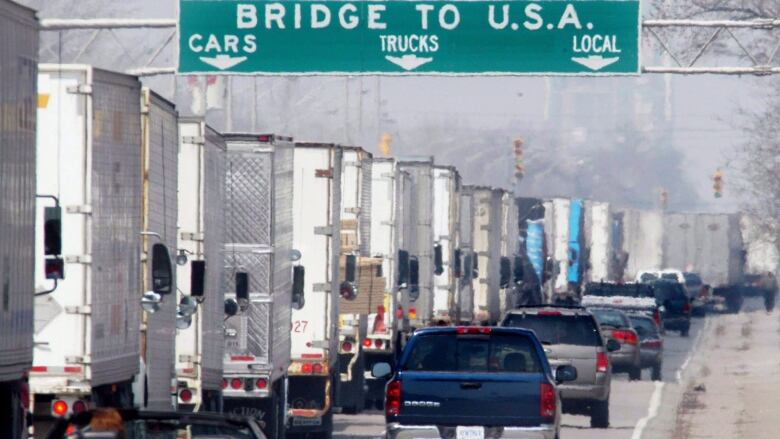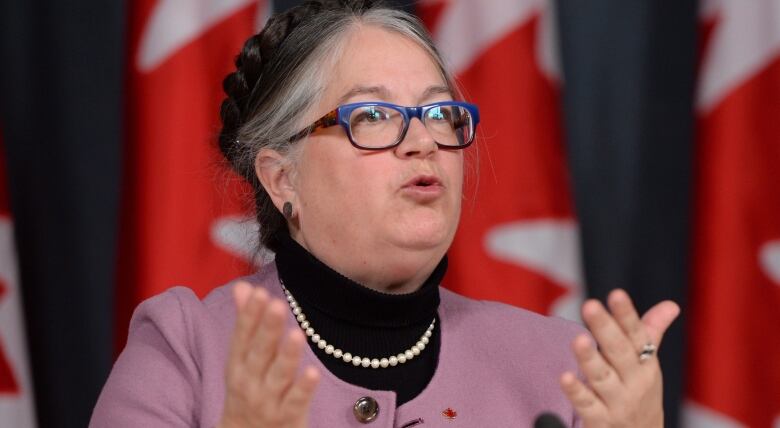CRA's new fingerprinting policy could create travel problems for accused tax evaders
Tax agency calls mandatory fingerprinting 'a powerful deterrent'

The Canada Revenue Agency has begun to record the fingerprints of every person charged with tax evasion, a move that could severely restrict foreign travel for anyone accused but not necessarily convicted of a criminal tax offence.
"Introducing a mandatory fingerprinting policy would serve as a powerful deterrent to those considering committing a serious tax offence or those who may contemplate reoffending," says an internal memorandum justifying the new measure.
"The mobility restriction is an important deterrent, especially for people engaged in offshore tax evasion."
The agency changed its policy manuals last fall to implement mandatory fingerprinting following years of inconsistent fingerprint collection based on the varying advice of local prosecutors.

The new policy means the fingerprints of all accused tax evaders will be recorded in the Canadian PoliceInformation Centre (CPIC) database, accessible by almost 70,000 Canadian police officers but also by some foreign agencies such as the U.S. Department of Homeland Security and its border officers.
As the memo notes, U.S. officials checking the CPIC database "may view a taxpayer charged and/or convicted for tax evasion as inadmissible to their country."
CBC News obtained a copy of the memo, and the July 7 order authorizing the new policy, under the Access to Information Act, with several sections blacked out under security and advice exemptions.
Tracking begins April 1
"Without a national policy on fingerprinting, CRA's convictions were not always recorded in CPIC," CRA spokesman David Walters said in an email. "Therefore, some persons convicted of tax evasion were unknown to law enforcement agencies."
Walters said the agency will rely on qualified police officersto collect the prints. He said there are no statistics to date on how many fingerprints have been collected since the change in policy but formal tracking is to begin April 1.
- CRA turning to 'big data' to focus its audits and catch tax cheats
- Tip line leads Canada Revenue Agency to offshore tax cheats
The CPIC database is keyed to fingerprints, which are the prime means of tracking a person's movements before and after conviction. "Without fingerprints, the CRA cannot ask law enforcement to carry out such tracing of movements," the memo says.
The document also says the new policy puts those accused of tax evasion on a level playing field with people charged withtheft, fraud and financial crimes.
They're not charging many people ... they're mostly settling out of court- Dennis Howlett of Canadians for Tax Fairness
There are other benefits, it says, including "facilitating the apprehension of an accused who fails to appear for trial or sentencing as it allows law enforcement to execute a bench warrant for the arrest of a person alleged to have committed a tax crime, including any accused who may leave the country to avoid facing the consequences of their actions."
Walters says if an accused is acquitted of tax evasion, the agency will "request" the fingerprints be removed from the CPIC database though some law firms specializing in fingerprint "destruction" warn the images could remain for months, depending on the protocols of the police service that registered the prints.
The new policy is part of the agency's renewed emphasis on tax cheats, especially offshore tax evaders, and includes $444.4 million earmarked in last year's budget to combat tax evasion over five years.
Financial tracking
Since January 2015, financial institutions have also been required to report directly to the CRA all international electronic fund transfers of $10,000 or more. In a little more than a year following that legislative change, the agency received data on more than 17 milliontransactions.
The tax agency has also been more frequently accessing the financial databases of FINTRAC, the federal centre that combats money laundering and terrorist financing, after critics said the two institutions weren't sharing enough information.
CRA formally asked FINTRAC for information from its databaseson specific cases 68 times in 2015-2016, more than triple the requestsfrom 2013-2014.

One of CRA's most persistent critics the non-profit Canadians for Tax Fairness, funded largely by unions questions the effectiveness of the new fingerprinting policy when the agency turns so seldom to the justice system to catch big tax cheats.
"They are not charging many people, so the evidence would seem to indicate they're mostly settling out of court," executive director Dennis Howlett said in an interview.
"They do need to take some cases to court to clearly establish some precedents and to strengthen their negotiating hand when they do settle out ofcourt We're a bit surprised there aren't more charges."
Howlett also said CRA is still not pursuing wealth-management firms that facilitate offshore tax evasion, or corporations that may be keeping profits in offshore tax havens to evade taxes at home.
Follow @DeanBeeby on Twitter












_(720p).jpg)


 OFFICIAL HD MUSIC VIDEO.jpg)
.jpg)



























































































